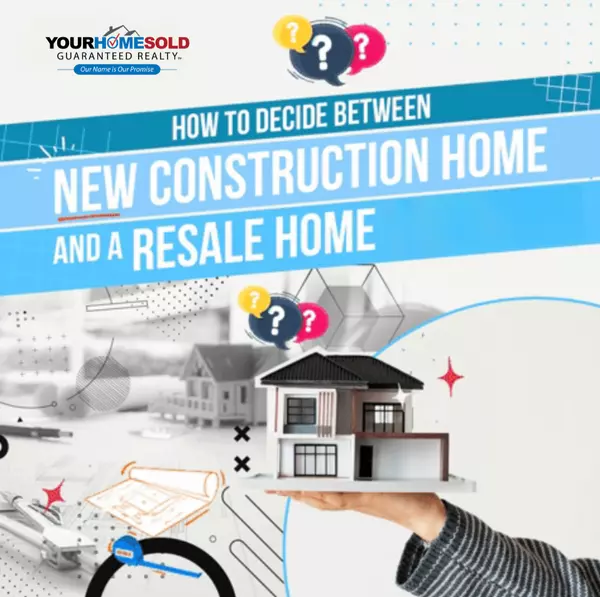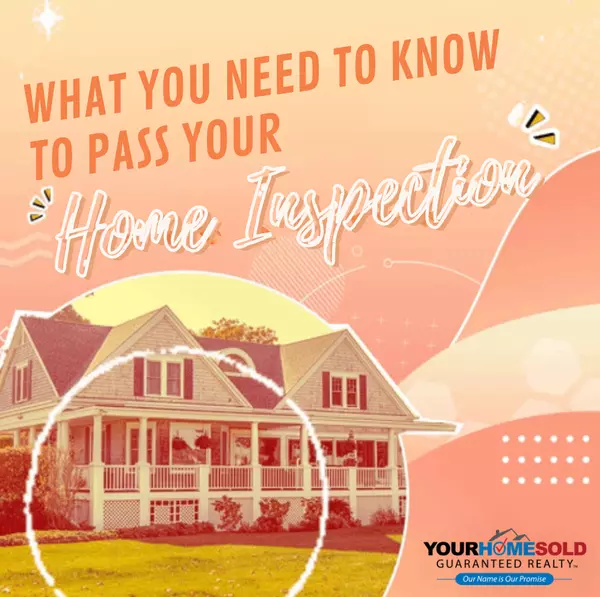

New Homes vs. Resale
NEW HOMES: 10 Tips To Save You Time and Money The Homebuyers’ Guide to NEW HOMES Read This BEFORE You Visit Your First Model Home! When shopping for your home, you’ll discover that most homes on the market are resales. Yet, one out of four homebuyers purchases a new home. Both new homes and resales offer advantages. Before you make a decision, let’s . . . COMPARE THESE POINTS! New Homes offer innovative use of space and style greater energy efficiency a choice of options and upgrades everything is new, and modern. VERSUS Existing Homes on average they are less expensive often they are in established neighborhoods with mature landscaping homes have already settled, eliminating possible problems that arisefrom this happening after the purchase of home As you can see, there are advantages to both. Most people consider both new and existing homes before they decide to purchase. Should you be thinking about buying a new house, here are 10 points to consider before you visit your first model home. 1. Get in Touch with Your Agent. Before you visit your first model home, sit down with your agent and do your homework. You’ll want to be prepared so that you can determine a comfortable price range for your new home. Determine a Comfortable Price Range If you own a home, you’ll first need to know the net proceeds from its sale in order to determine how much cash you’ll have to work with. Don’t simply estimate this but carefully calculate every possible selling cost. If you’re a first time buyer, you’ll need to first qualify your income. Determine the size of your downpayment, then work out a monthly debt load so you can determine a comfortable price range. 2. Sellers’ Agents Versus Buyers’ Agents. Here’s a good point to remember. The sales agent in the model home represents the builder, not you. They are known as sellers’ agents. As a buyer you can work with a buyers’ agent at no additional cost. It’s his/her business to best represent your needs by being knowledgeable about home construction, warranties, financing, differences in pricing, quality, even lot selection so that you get the best value for your money. 3. A Builder For All Reasons. Like all tradesmen, builders vary in their fields of expertise. For example there are builders who specialize in craftsmanship, others who are known for their innovative use of space, and those who offer below-market financing or customer attention during construction and after move-in. Determine your own specific needs or preferences then shop around for a builder that will best address your requirements. 4. Get the Facts About Your Builder. Before making a final decision, it is wise to check out the reputation and financial strength of the builder. Get “spec sheets” on home features covering everything from floor plans to energy efficiency, including lot availability and delivery of your home.* 5. Check Out the Neighborhood. Learn as much as you can about the community. Discover what amenities it has to offer. Investigate if financial reserves have been set aside to build or replace major amenities like schools or community roads Find out from local land-use officials what else is planned or could be constructed in the area, especially where vacant land is applicable. Review the rules for the homeowner’s association, or find out if one will be set up. Think of how you will be affected by commuting routes and times. 6. Choosing Options and Upgrades. The least expensive the base price of the house is, the more options and upgrades you can add without fear of overpricing it for the neighborhood. Options are items the builder installs during construction, such as adding usable space like a sunroom or a powder room. These features can add the most to the resale value of your home. Upgrading means selecting quality above “builder standard” such as carpeting, ceramics, detailing, kitchen fixtures and appliances. Be sure to take advantage of builder incentives that offer free upgrades or credit off the sale price. Remember, you can add a deck, finished basement or landscaping later and sometimes for less money. 7. Negotiations. Often buyers don’t realize that there may be room for negotiating price, upgrades or options. For example, you have some scope for negotiating with the builder if s/he has a completed a home but hasn’t sold it. Also some “premium lots” are priced higher and are sometimes saved to be sold last. Keep in mind that typically, all lots cost the builder the same, so be sure to enquire about lot pricing. Builders may offer discounts or special financing to help close a sale. 8. Be Sure the Contract Works in Your Favor! When spelling out the particulars of an agreement with your builder, ensure you protect yourself by having safeguards written into the agreement, such as: placing your deposit in escrow detailing your upgrades; allowing you access to the construction site to check on progress; a 30-day advance notice of the closing date. an explanation of what the fine print means in the warranties of the builder and manufacturer. 9. Financing — What’s Best for You? Some builders, especially in high-volume communities that place large numbers of loans, can offer special financing packages. However, because “home loan” lending is highly competitive, you have many financing choices other than those being offered by the builder. Shop around for everything, from rates to lender fees. Appraisals, inspections, surveys, attorneys and closing fees can vary as well. 10. Just Because it’s New... Doesn’t Mean it’s Perfect. Yes it’s new and typically it’s built with modern materials that are durable, low maintenance, stronger, quieter, and safer. But because nothing is perfect, even if it’s new, consider hiring a reputable, licensed home inspector. Then create a builder “punchlist”, from what you’ve learned to address any problems before closing. Consider budgeting for items to be modified or added later on. Many new home buyers use a real estate agent to help them negotiate the best price and terms with the builder. Immediate Delivery - New HomesBuyer Advantages Your Builder May Not Reveal! Here’s a fact that you may not be aware of. Some builders have newly-constructed homes available for immediate delivery. Usually these homes are ready to move into within 30 days. Even if some builders are eager to sell, they’ll probably keep that knowledge to themselves. Immediate delivery homes are often available for various reasons: the community, where new homes are being constructed is nearly complete, so the builder proceeds to have the on-site-contractors build “spec” homes (homes built on speculation for sale) on the last lots; the model home is for sale; the contract on a home has fallen through; builders include constructing homes for immediate delivery for buyers who are relocating or who have sold their previous home and need one to move into quickly. Immediate delivery homes may be more desirable because, sometimes builders offer financing incentives or free options. This may be done in place of chopping prices to appeal to buyers purchasing later in the building phase. An immediate delivery home is an advantageous way to purchase a home if you need to move in quickly, or need a physical space to walk through and see before you sign a contract. Be sure to enquire.
Read More

Avoid Legal Mistakes
Legal Mistakes to Avoid When Buying or Selling a Home When you’re buying or selling a home, there are many important legal issues, large and small, that you should be aware of. To begin with, residential real estate is not an uncomplicated process. When such a major investment is transferred from one party to another, even the subtle legal details need to be taken care of. If not they can turn into major problems if not handled correctly. It is essential to be as informed as possible in order to properly protect yourself in the process of buying or selling a home. There are several issues that will certainly cost you if you are not properly informed. In this report, we identify 3 of the most common of these issues. Because there are many legal issues to consider, your first step is to consider choosing reputable and experienced professionals to represent your interests. When selecting your real estate agent, ensure you find someone who has extensive experience with the process. They should also refer you to a local real estate lawyer who can ensure your interests are protected. 3 Legal Issues That Could Cost You Thousands The following are 3 common examples of legal clauses that can work to your disadvantage if not worded correctly: 1. Survey Clause Homebuyers have the right to have a survey clause added to the real estate contract on the home they wish to purchase. When this home is yours, you should be aware of the implications of this clause. Evaluate each agent’s responses to these 10 questions carefully and objectively. Who will do the best job for you? These questions will help you decide. Your current survey may no longer be up-to-date if you have had a swimming pool built, or an addition added, since the survey was drawn up. If your survey is not up-to-date by these standards, the buyer may request an updated survey. The homeseller may be required to bear the cost to have a new survey prepared. The cost for this process typically runs anywhere from $700 to $1,000. This is $700-$1,000 less that you will net for your home. An experienced real estate agent should provide you with a survey and it is up to the buyer to decide if the survey is acceptable. Your agent should be able to advise you appropriately when dealing with this issue, but if you or your agent are unsure, you have the right to consult your lawyer before you sign the offer. Don’t be afraid to take this important step, as thousands of dollars could be riding on the decisions you make at this point. 2. Home Inspection Clause Some real estate transactions have fallen through because of the wording of the inspection clause. This clause previously stated that the buyer has the right to rescind their offer if they were dissatisfied with the outcome of a home inspection. In some cases, this was used unfairly against the seller when a minor repair issue would give a buyer a legal loophole to their change of heart. Meanwhile, the seller lost both time and money because of this technicality. First, they may have declined other offers (offers which may now be lost forever) in favor of the one which has now fallen through, and missed the opportunity for other offers which might have come through during the current negotiations. Secondly, their home may have been unfairly labeled as a “problem house” which could cost them in terms of the dollar amount of subsequent offers. And thirdly, they then found themselves back on the market, incurring the inconvenience and additional carrying costs of having to market their property for a longer period of time. This clause should read that the seller has the option to fix any items that the home inspection flags. This wording protects both the buyer and the seller. The buyer is assured that the home they are buying meets objective structural standards, and the seller is protected against the whim of a buyer who changes his/her mind. Not all contracts will be written in this way. Make sure you are working with a lawyer experienced in real estate matters to ensure your interests are protected. 3. Swimming Pool Clause If the home you are buying or selling has a swimming pool, there should be a specific legal clause which addresses this costly item. Some contracts are written to provide a warranty to the pool to survive closing. The broadness of this wording protects buyers, but is not necessarily in the best interest of sellers who might instead request that the clause be worded to indicate that, at the time of closing, they believe the pool to be in good working condition. The existence of a pool in any home negotiation is certainly reason enough to ensure that you seek advice from a real estate professional and obtain legal counsel so that your interests are represented properly. By being aware of these and other legal issues, and by seeking advice from an experienced real estate professional and obtaining legalcounsel, you can protect yourself against unnecessary cost and potential hardship.
Read More

Pass Your Inspection
Things You Need to Know To Pass Your Home Inspection Homebuyers Want to Know Your Home Inside And Out While homebuyers are as individual as the homes they plan on purchasing, one thing they share is a desire to ensure that the home they will call their own is as good beneath the surface as it appears to be. Will the roof end up leaking? Is the wiring safe? What about the plumbing? These, and others, are the questions that the buyers looking at your home will seek professional help to answer. According to industry experts, there are at least 33 physical problems that will come under scrutiny during a home inspection. We’ve identified the 11 most common of these and, if not identified and dealt with, any of these 11 items could cost you dearly in terms of repair. In most cases, you can make a reasonable pre-inspection yourself if you know what you’re looking for. And knowing what you’re looking for can help you prevent little problems from growing into costly and unmanageable ones. 11 Things You Need to Know to Pass Your Home Inspection. When you put your home on the market, you don’t want any unpleasant surprises that could cost you the sale of your home. By having an understanding of these 11 problem areas as you walk through your home, you’ll be arming yourself against future disappointment. 1. Defective Plumbing Defective plumbing can manifest itself in two different ways: leaking, and clogging. A visual inspection can detect leaking, and an inspector will gauge water pressure by turning on all faucets in the highest bathroom and then flushing the toilet. If you hear the sound of running water, it indicates that the pipes are undersized. If the water appears dirty when first turned on at the faucet, this is a good indication that the pipes are rusting, which can result in severe water quality problems. 2. Damp or Wet Basement An inspector will check your walls for a powdery white mineral deposit a few inches off the floor, and will look to see if you feel secure enough to store things right on your basement floor. A mildew odor is almost impossible to eliminate, and an inspector will certainly be conscious of it. It could cost you $200-$1,000 to seal a crack in or around your basement foundation depending on severity and location. Adding a sump pump and pit could run you around $750 - $1,000, and complete waterproofing (of an average 3 bedroom home) could amount to $5,000-$15,000. You will have to weigh these figures into the calculation of what price you want to net on your home. 3. Inadequate Wiring & Electrical Your home should have a minimum of 100 amps service, and this should be clearly marked. Wire should be copper or aluminum. Home inspectors will look at octopus plugs as indicative of inadequate circuits and a potential fire hazard. 4. Poor Heating & Cooling Systems Insufficient insulation, and an inadequate or a poorly functioning heating system, are the most common causes of poor heating. While an adequately clean furnace, without rust on the heat exchanger, usually has life left in it, an inspector will be asking and checking to see if your furnace is over its typical life span of 15-25 yrs. For a forced air gas system, a heat ex- changer will come under particular scrutiny since one that is cracked can emit deadly carbon monoxide into the home. These heat exchangers must be replaced if damaged - they cannot be repaired. 5. Roofing Problems Water leakage through the roof can occur for a variety of reasons such as physical deterioration of the asphalt shingles (e.g. curling or splitting), or mechanical damage from a wind storm. When gutters leak and downspouts allow water to run down and through the exterior walls, this external problem becomes a major internal one. 6. Damp Attic Spaces Aside from basement dampness, problems with ventilation, insulation and vapor barriers can cause water, moisture, mold and mildew to form in the attic. This can lead to premature wear of the roof, structure and building materials. The cost to fix this damage could easily run over $2,500. 7. Rotting Wood This can occur in many places (door or window frames, trim, siding, decks and fences). The building inspector will sometimes probe the wood to see if this is present - especially when wood has been freshly painted. 8. Masonry Work Rebricking can be costly, but, left unattended, these repairs can cause problems with water and moisture penetration into the home which in turn could lead to a chimney being clogged by fallen bricks or even a chimney which falls onto the roof. It can be costly to rebuild a chimney or to have it repointed. 9. Unsafe or Overfused Electrical Circuit A fire hazard is created when more amperage is drawn on the circuit than was intended. 15 amp circuits are the most common in a typical home, with larger service for large appliances such as stoves and dryers. It can cost several hundred dollars to replace your fuse panel with a circuit panel. 10. Adequate Security Features More than a purchased security system, an inspector will look for the basic safety features that will protect your home such as proper locks on windows and patio doors, Dead bolts on the doors, smoke and even carbon monoxide detectors in every bedroom and on every level. Even though pricing will vary, these components will add to your costs. Before purchasing or installing, you should check with your local experts. 11. Structural/Foundation Problems An inspector will certainly investigate the underlying footing and foundation of your home as structural integrity is fundamental to your home.
Read More
Categories
Recent Posts











